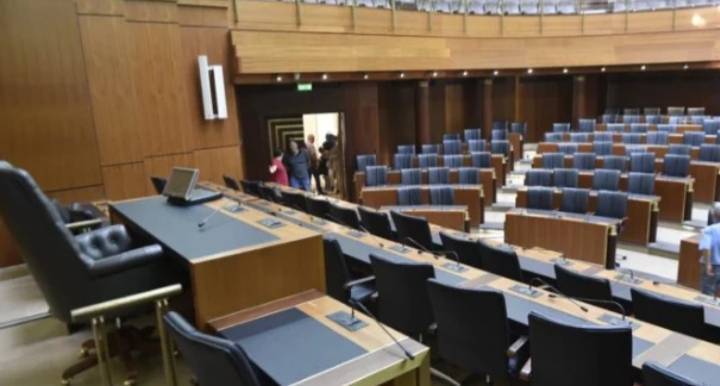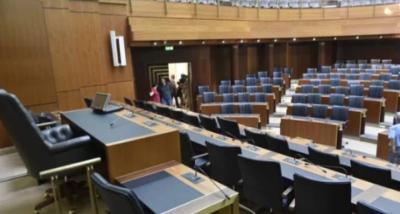A new debate is intensifying among political forces ahead of the anticipated call by the Speaker of the Parliament, Nabih Berri, to hold a legislative session next week or the week after. Just hours before the meeting of the Parliament's Bureau to set the agenda for the session, a war of statements has ignited between the group opposing the session, which considers it unconstitutional and illegitimate amid the ongoing presidential vacuum, and the group insisting on holding it based on the principle of "legislation of necessity" to address urgent laws, most notably the Capital Control Law.
Notably, amidst this dispute, the 46 opposing deputies signed a detailed statement outlining the reasons for their objection to holding this session, asserting that any political activity prior to the election of a president is unconstitutional and illegitimate. These deputies belong to some opposition parties including the Strong Republic bloc, the Kataeb, change deputies, and independents, which may forewarn of this disagreement extending to the presidential election process, with no signs of it occurring soon in the current atmosphere.
In this context, member of the Kataeb bloc, MP Elias Hankash, stated in a call with "Al-Anbaa" electronic that the legislative session intended to be held has "vanished" and is effectively canceled following their statement as opposing deputies, numbering 46. He ruled out any insistence on holding it amidst the presidential vacancy, considering it unconstitutional and illegitimate in the absence of a president. He commented on Speaker Berri’s determination to call for an open session, saying that he can invite such a session and they are ready to remain in parliament until a president is elected.
Conversely, member of the Development and Liberation bloc, MP Mohammad Khawaja, affirmed to "Al-Anbaa" that the parliamentary session will take place as scheduled, even if there are 46 opposing deputies, because holding it requires 65 deputies, unlike the presidential election session which requires an absolute majority. He pointed out that the agenda for this session includes important items, most notably the Capital Control Law, which must be approved given the difficult circumstances the country is experiencing, emphasizing that it cannot be postponed. He expressed surprise at some being opposed to legislation and not participating in dialogue while also opposing cabinet meetings, questioning how the 46 opposing deputies can engage in the dialogue called for by Speaker Berri, and if they refuse, how can they be contacted to elect a president?
In this respect, Khawaja pointed out that in the 11 electoral sessions, no team has proven it has the required quorum to elect a president, asking: "Is total vacancy and paralyzing the council what is desired, especially since we need laws to manage public utilities and issues related to people's lives?" He expressed astonishment at the mentality of perpetuating the vacuum. He reiterated that Speaker Berri has called the Bureau to convene tomorrow, Monday, to discuss the subject of the session so that actions can be taken accordingly. Khawaja confirmed once again that the session is underway and stated that they will not accept paralysis of the council under any circumstances as it is the existing constitutional institution, noting that the need today is to restore order to institutions through electing a president and fixing the imbalance, as his election has its requirements that cannot be overlooked. He reminded that the votes received by MP Michel Moawad in the 11 sessions ranged between 34 and 44, indicating that there is no absolute majority; thus, no group can secure this majority.
Khawaja called on some opposing deputies to participate in the dialogue and start working together to break the deadlock, as, in his opinion, the pathway to resolution begins with electing a president. It is unquestionable that the country cannot bear further disruption in institutions, especially amidst the widespread collapse at all levels. Therefore, the importance remains in managing citizens' affairs, regardless of settling scores and conflicting political interests.




